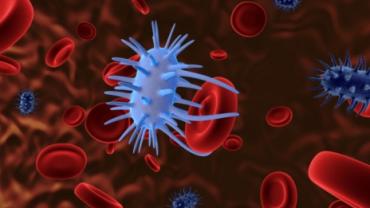
In part 1 we elucidated the crucial role zinc plays in over 300 enzymes ranging from the regulation of DNA transcription to the degradation of insulin. With such a wide array of functions for this trace element it is no surprise that zinc insufficiency has so many diverse effects.
A hallmark of zinc deficiency is reduced senses of taste and smell. However this may be akin to scurvy and rickets in that it is a very advanced sign of severe and longstanding deficiency. There may be other milder systemic effects that indicate insufficiency long before such a striking and worrisome sign develops. Zinc insufficiency may manifest in the skin hair and nails as dermatitis acne hair thinning and loss white spots on the nails and slow wound healing.1
The eyes are another place where zinc deficiency may have adverse effects. Age-related macular degeneration (AMD) may result from inadequate zinc. This nutrient is found at high concentrations in the part of the retina affected by AMD and the activity of zinc-dependent enzymes in the retina decline with age. Studies looking at zinc supplementation for improvement of AMD have produced mixed results but overall there seems to be a beneficial role for high-dose zinc (upwards of 50-80mg/day) in protecting eye health. Zinc deficiency may be common in older individuals particularly if they reduce their consumption of zinc-rich animal foods such as beef and pork which may be more difficult to prepare—and chew—than plant-based sources such as grains and canned beans whose zinc is less bioavailable.
Zinc deficiency in children may result in stunted growth as well as chronic diarrhea recurring infections and dermatitis. Typically thought of as a problem limited to underdeveloped countries zinc deficiency during critical developmental phases is an increasing concern in the industrialized world possibly owing to the demonization of zinc-rich animal foods as well as broad-scope recommendations for basing diets on phytate-rich whole grains. Inadequate zinc may impair healthy cognitive function and proper sexual maturation. Assuming adequate zinc intake in breastfeeding mothers human breast milk provides sufficient and highly bioavailable zinc to infants. However weaning babies onto cereal grains and vegetables—common “starter foods”—may result in sub-optimal zinc status compared to weaning onto softened/pureed animal foods.
As discussed in part 1 individuals who follow strict plant-based diets may be at risk for zinc insufficiency. Vegans tend to have lower zinc status than vegetarians and vegetarian females may be at greater risk than males. This could be due to lower overall caloric intake which is especially prevalent among younger females whether they follow vegetarian or omnivorous diets. Other factors that may exacerbate poor zinc status in adolescent females include poor food choices strenuous exercise and nutrients lost through menstruation.
Others who may be at risk for compromised zinc status are anyone with a condition that impairs digestion and nutrient absorption such as inflammatory bowel conditions celiac disease and low stomach acid. Heavy alcohol consumption reduces absorption and increases excretion of zinc; poorly controlled diabetes may also increase urinary zinc loss.1
Assessing zinc status can be somewhat complex. Zinc homeostasis is a carefully choreographed ballet between plasma levels intracellular levels and excretion. When there is an increased need for zinc zinc loss via excretion will be reduced and it will also be pulled from the blood to be brought into the tissues called zinc redistribution. Moreover plasma zinc levels may be lowered by oral contraceptives pregnancy and subclinical infections. The commonly employed zinc taste can provide one valuable piece of the puzzle. Detailed assessment of food and nutrient intake as well as the overall clinical picture can be a guide as to whether signs and symptoms of zinc deficiency are due to inadequate intake and assimilation—which can be easily corrected—or if something pathological is hiding beneath the surface.
Because zinc plays a role in so many different physiological mechanisms depletion of the body’s limited zinc stores may result in rapid development of symptoms of insufficiency. Fortunately zinc repletion typically resolves unpleasant effects of insufficiency rapidly—sometimes within days. Therefore the results of short-term supplementation may be an indirect or “back door” way to determine if zinc insufficiency was/is a causal factor in a patient’s clinical presentation.